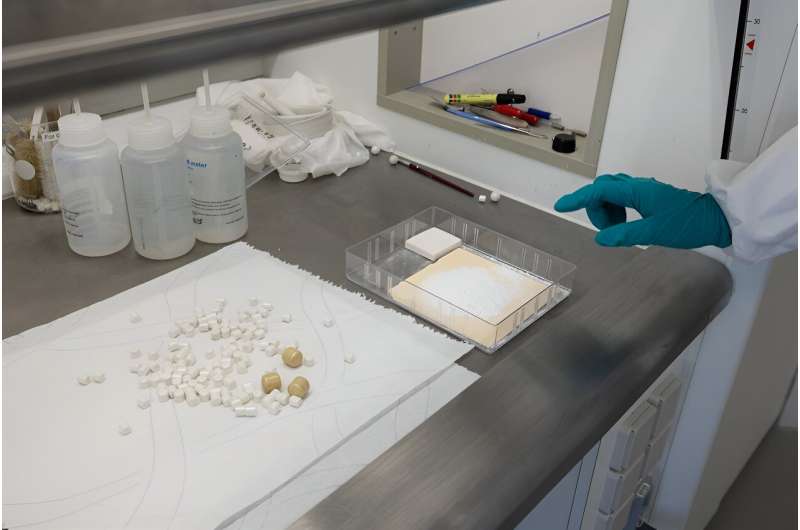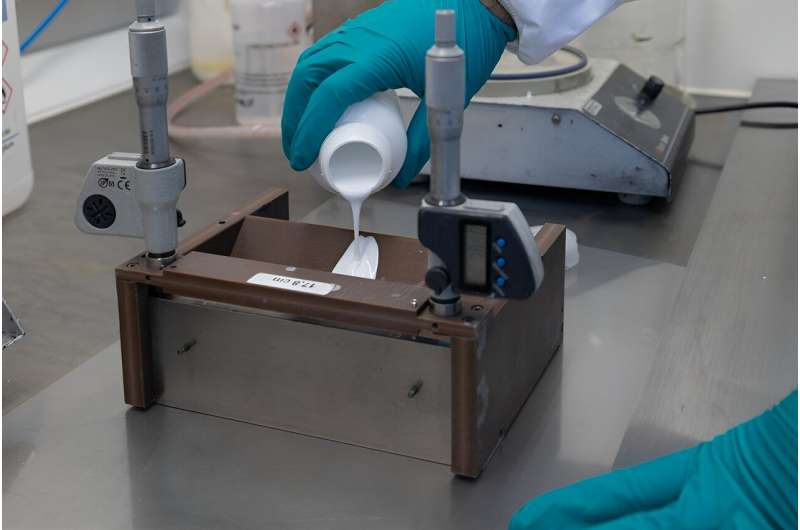
It is the battery in your electric car that determines how far you can drive on one charge and how quickly you can re-charge. However, the lithium-ion battery, the most widely used electric car battery today, has its limitations—in terms of capacity, safety and also availability. Because lithium is an expensive, environmentally harmful material and the scarcity of the relatively rare metal can hinder the green transition of car transport.
As more and more people switch to electric cars, we need to develop a new generation of lithium-free batteries, which are at least as efficient, but more eco-friendly and cheaper to produce. This requires new materials for the battery's main components; anode, cathode, and electrolyte, as well as developing new battery designs.
It is a research field that is currently occupying researchers all over the world, because when we find new 'recipes' for batteries, it will enable a significant reduction of the transport sector's carbon emissions.
At DTU, researcher Mohamad Khoshkalam has invented a material that has the potential to replace lithium in tomorrow's super battery: solid-state batteries based on potassium and sodium silicates. These are rock silicates, which are some of the most common minerals in the Earth's crust. It is found in the stones you pick up on the beach or in your garden.
A great advantage of the new material is that it is not sensitive to air and humidity. This makes it possible to mold it into a paper-thin layer inside the battery.
Patented superionic material
The potential of the milky-white, paper-thin material based on potassium silicate is huge. It is an inexpensive, eco-friendly material that can be extracted from silicates, which cover over 90% of the Earth's surface. The material can conduct ions at around 40 degrees and is not sensitive to moisture.
This will make scaling up and future battery production easier, safer and cheaper, as production can take place in an open atmosphere and at temperatures close to room temperature. The material also works without the addition of expensive and environmentally harmful metals such as cobalt, which is currently used in lithium-ion batteries to boost capacity and service life.
"The potential of potassium silicate as a solid-state electrolyte has been known for a long time, but in my opinion has been ignored due to challenges with the weight and size of the potassium ions. The ions are large and therefore move slower," says Mohamad Khoshkalam.
To understand the perspectives of Mohamad Khoshkalam's discovery, one must first understand the crucial role the electrolyte plays in a battery. The electrolyte in a battery can be a liquid or a solid material—a so-called solid-state electrolyte. The electrolyte allows the ions to move between the battery's anode and cathode, thereby maintaining the electrical current generated during discharging and charging. In other words, the electrolyte is crucial for the battery capacity, charging time, lifespan, and safety.
The electrolyte's conductivity depends on how fast the ions can move in the electrolyte. The ions in rock silicates generally move slower than the ions in lithium-based liquid electrolytes or solid-state electrolytes, as they are larger and heavier. But Mohamad Khoshkalam has found a recipe for a superionic material of potassium silicate and a process that makes the ions move faster than in lithium-based electrolytes.
"The first measurement with a battery component revealed that the material has a very good conductivity as a solid-state electrolyte. I cannot reveal how I developed the material, as the recipe and the method are now patented," Mohamad Khoshkalam continues.

The battery everyone is waiting for
Both researchers and electric car manufacturers consider solid-state batteries to be the super battery of the future. Most recently, Toyota has announced that they expect to launch an electric car with a lithium solid-state battery in 2027–28. However, several car manufacturers have previously announced electric cars with solid-state batteries, only to subsequently pull out.
Citation: Tomorrow's super battery for electric cars is made of rock (2024, June 26) retrieved 26 June 2024 from https://techxplore.com/news/2024-06-tomorrow-super-battery-electric-cars.html
This document is subject to copyright. Apart from any fair dealing for the purpose of private study or research, no part may be reproduced without the written permission. The content is provided for information purposes only.
